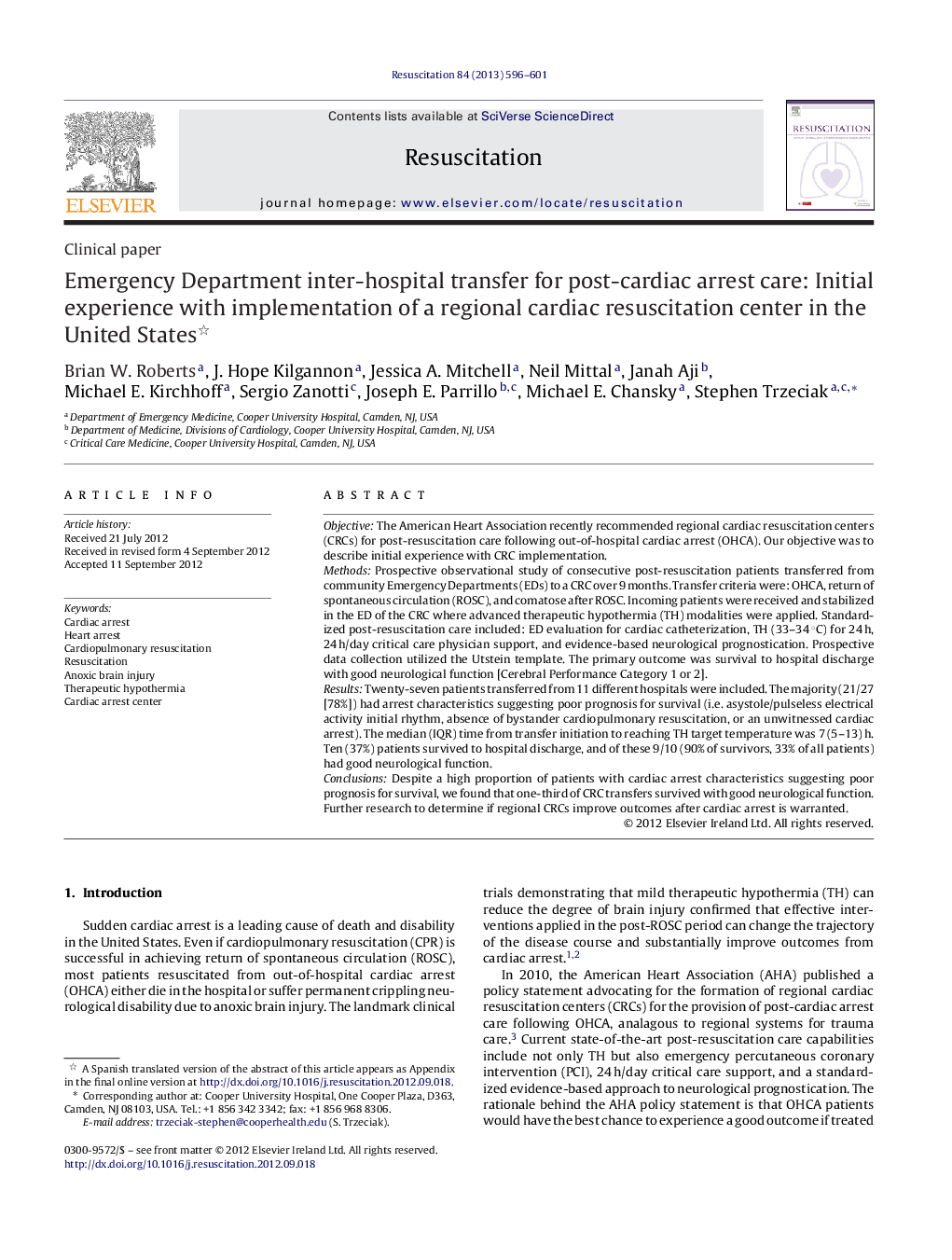| کد مقاله | کد نشریه | سال انتشار | مقاله انگلیسی | نسخه تمام متن |
|---|---|---|---|---|
| 5998753 | 1181447 | 2013 | 6 صفحه PDF | دانلود رایگان |

ObjectiveThe American Heart Association recently recommended regional cardiac resuscitation centers (CRCs) for post-resuscitation care following out-of-hospital cardiac arrest (OHCA). Our objective was to describe initial experience with CRC implementation.MethodsProspective observational study of consecutive post-resuscitation patients transferred from community Emergency Departments (EDs) to a CRC over 9 months. Transfer criteria were: OHCA, return of spontaneous circulation (ROSC), and comatose after ROSC. Incoming patients were received and stabilized in the ED of the CRC where advanced therapeutic hypothermia (TH) modalities were applied. Standardized post-resuscitation care included: ED evaluation for cardiac catheterization, TH (33-34 °C) for 24 h, 24 h/day critical care physician support, and evidence-based neurological prognostication. Prospective data collection utilized the Utstein template. The primary outcome was survival to hospital discharge with good neurological function [Cerebral Performance Category 1 or 2].ResultsTwenty-seven patients transferred from 11 different hospitals were included. The majority (21/27 [78%]) had arrest characteristics suggesting poor prognosis for survival (i.e. asystole/pulseless electrical activity initial rhythm, absence of bystander cardiopulmonary resuscitation, or an unwitnessed cardiac arrest). The median (IQR) time from transfer initiation to reaching TH target temperature was 7 (5-13) h. Ten (37%) patients survived to hospital discharge, and of these 9/10 (90% of survivors, 33% of all patients) had good neurological function.ConclusionsDespite a high proportion of patients with cardiac arrest characteristics suggesting poor prognosis for survival, we found that one-third of CRC transfers survived with good neurological function. Further research to determine if regional CRCs improve outcomes after cardiac arrest is warranted.
Journal: Resuscitation - Volume 84, Issue 5, May 2013, Pages 596-601